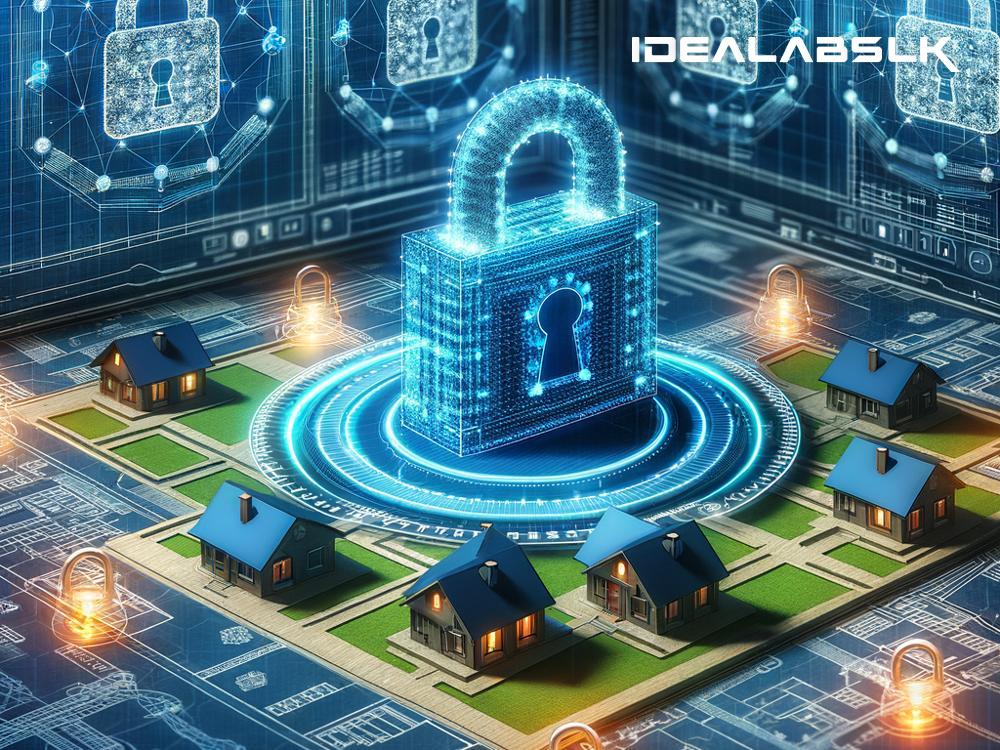Unlocking the Future of Real Estate: How Blockchain Promises Enhanced Security for Investors
In the rapidly evolving world of real estate investment, the search for more secure and transparent ways to manage property transactions has led to an exciting technological breakthrough: blockchain. Though primarily associated with cryptocurrencies like Bitcoin, blockchain's potential stretches far beyond, promising to revolutionize the real estate sector by offering unparalleled security benefits to investors. But what exactly is this technology, and how does it ensure the safety and security of real estate investments? Let's dive in.
What is Blockchain?
Imagine a digital ledger, but unlike any traditional ledger, this one is decentralized and distributed across countless computers around the world. Every transaction made on this ledger is recorded in a "block" and added to a "chain" of previous transactions. Once a block is added, it's nearly impossible to alter, creating a permanent record. This is the core idea behind blockchain technology — a system designed for impeccable security and transparency.
The Security Quandary in Real Estate Investment
Traditionally, real estate transactions have been complex, involving multiple parties, heaps of paperwork, and unfortunately, ample opportunities for fraud. From forged documents to fraudulent ownership claims, the pitfalls are numerous, complicating the investment process and posing significant risks to investors.
Enter blockchain, a beacon of security in this murky landscape. Here's how it promises to safeguard real estate investments:
1. Immutable Records: The Bedrock of Trust
The most striking feature of blockchain is its immutability. Once a transaction is recorded on the blockchain, altering it is virtually impossible. This ensures that every piece of information regarding property transactions — from ownership records to transaction history — is accurate and tamper-proof. For investors, this translates to a foundational layer of trust in the property's legitimacy.
2. Transparency: Seeing Through the Fog
Blockchain offers unprecedented transparency. Every transaction is visible to all parties involved, but without compromising personal privacy. This means investors can track the history of a property in real-time, assessing its legitimacy and value without fear of hidden complications or disputes. This transparent ecosystem significantly reduces the risk of fraud, making investments safer.
3. Streamlined Transactions: Efficiency Meets Security
Real estate transactions are notoriously slow, primarily due to the cumbersome process of verification and documentation. Blockchain streamlines this by enabling smart contracts — self-executing contracts with the terms directly written into code. These contracts automatically enforce and verify transactions as soon as predetermined conditions are met, eliminating the need for intermediaries. For investors, this not only speeds up the transaction process but also tightens security by reducing human error and potential fraud.
4. Improved Property Management
Blockchain extends its security benefits to property management as well. By utilizing smart contracts, transactions related to property management, such as leasing and rent payments, can be automated and securely processed. This minimizes disputes and ensures a direct, secure link between investors, tenants, and property managers.
The Path Forward: Embracing Blockchain in Real Estate Investing
The adoption of blockchain in real estate is still in its infancy but growing rapidly. Progressive real estate firms and tech startups are beginning to implement blockchain solutions, showcasing their potential to mitigate risks and enhance investor security. However, widespread adoption will require overcoming regulatory hurdles and technological challenges, as well as increasing awareness and understanding of blockchain among investors and stakeholders in the real estate sphere.
Conclusion
Blockchain technology holds the promise of transforming the real estate investment landscape, offering a fortress of security in an industry fraught with uncertainties. By ensuring immutability, transparency, and efficiency in transactions, blockchain not only secures investments but also fosters trust and confidence among investors. As we stand on the cusp of this technological revolution, the future of real estate investing appears brighter and more secure than ever. Embracing blockchain technology could well define the next era of real estate, where security and trust are not just ideals but tangible realities.

